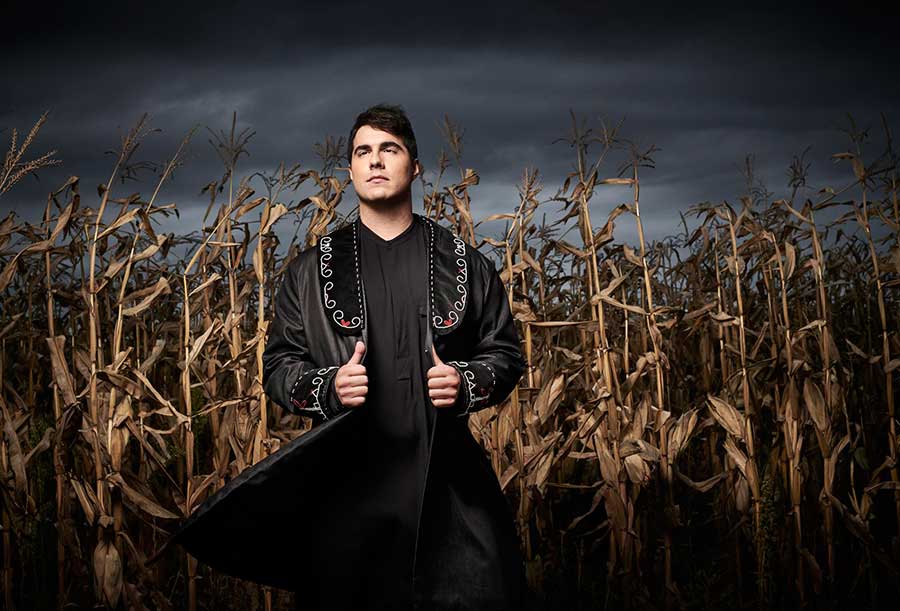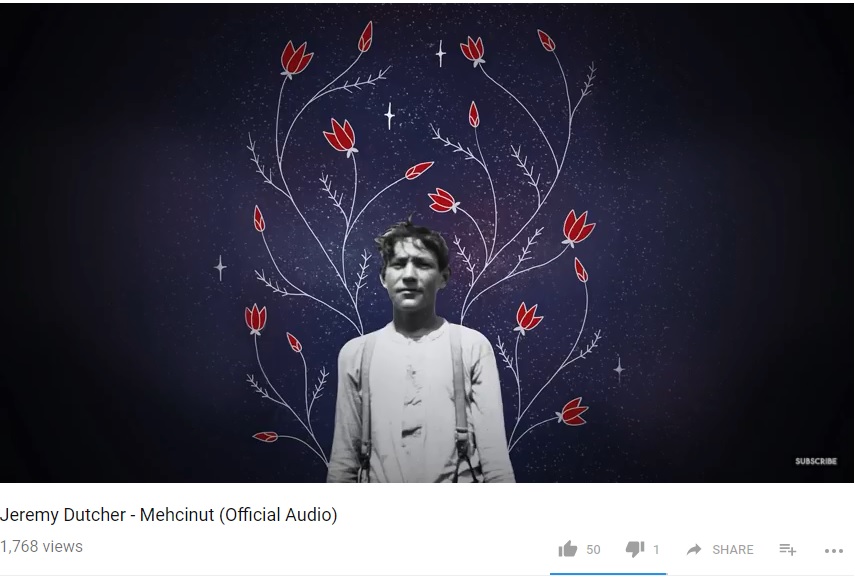-
Something Old, Something New: Jeremy Dutcher Brings Wolastoqiyik Lintuwakonawa to the Free Concert Series
By Mischa JacksonPosted in Free Concert Series
Toronto-based composer and vocalist Jeremy Dutcher was trained in classical music – but “tenor” is just one of the descriptions he applies to himself. His debut album Wolastoqiyik Lintuwakonawa (Our Maliseet Songs) was released this month to widespread acclaim and pairs the ancestral voices of his Wolastoq (Maliseet) First Nation heritage with the modern sounds of the folk, rock, and electronic genres. In fusing old and new, Dutcher has taken traditional Wolastoq melodies that haven’t been heard in hundreds of years and found a way to bring them to a brand new audience.
On April 10, he’s bringing his distinctive sound to the Free Concert Series and, just ahead of his performance, Dutcher spoke to the COC about his career - and about giving voice to a "dying" language on his album.
COC: What led you to a career in classical music?
JD: I came to classical music through theatre. My first encounters were through the lieder of Schubert and I still carry a love of this music to today. I think I struggle to call myself a strictly ‘classical musician.’ Studying the western classical canon was part of my journey with sound, but these are just some of the colours and gesture that I am able to draw on in a vocal performance. I rely equally on my classical and traditional foundations in the music I create.
COC: As we understand it, your debut album was inspired by a conversation you had with an elder.
JD: Our elders will often do this, plant a seed or level a challenge for the young people. For me, it was while I was in conversation with Wolastoq song carrier Maggie Paul, where I was encouraged to access our old songs through the archive at the Canadian Museum of History. I travelled to Ottawa and worked with archivists to take a glimpse into the lives of the Wolastoqiyik over 110 years ago.
COC: By combining First Nation melodies with the music you make today, this album gives your ancestors a place on the modern stage. What was the recording process like?
JD: This project, from research, composition, and recording has been a five-year process. At the beginning I wasn’t exactly sure how this work would shape up, but what I knew was that I had a responsibility to share what I had witnessed at the museum with my community.
The moment I heard those ancestral voices from generations ago, I was instantly plugged into the artistic continuum of Wolastoqey artistic practice—mecimiw naka askomiw (always and forever).
Once I heard and transcribed these old melodies, I then set to arranging them for piano, voice and string quartet. I then connected with Montreal-based producer and electro-acoustic wizard Buffalo. He brought a really fresh and contemporary perspective to the recording process.
Another highlight of the recording process was the opportunity to collaborate with other artist as well, including a COC Ensemble Studio grad Teiya Kasahara (soprano), and recent member of the COC Orchestra Academy, Lucas Blekeberg (viola).
COC: Some might say that your album gives voice to a dying language. What are your hopes for the language going forward?
JD: The language was very important to this composition project. The record that I made is complete within our Wolastoqey language and I am incredibly proud of that. I was very fortunate to have a relationship with this language from a very young age and feel that it is my duty to share it unapologetically.
Our Wolastoq language is considered severely endangered and if we don’t take serious steps to preserve and save our language we may lose it for good. When we lose a language, we don’t simply lose words, we lose entire ways of seeing and experiencing the world, and one that is so particularly rooted on Turtle Island. The language is not dying though, it is resurging; I have great hope for our language.
COC: What response have you gotten from Indigenous communities about revitalizing the songs you featured on your album?
JD: I have been so supported by my community both in New Brunswick and also here in Toronto. I draw on their support to do this work in so many ways. Many people, like myself, haven’t heard these old voices before, so I think many have connected with that experience of communication with our ancestors. To me, song is the easiest way for me to connect to them and music has helped me understand the meaning even when I didn’t know the words.
Listen to Jeremy Dutcher's Mehcinut
Jeremy takes the stage at 12 p.m. in the Richard Bradshaw Amphitheatre, in the Four Season Centre for the Performing Arts. For more information on his performance and the Free Concert Series, visit: coc.ca/FreeConcerts.

